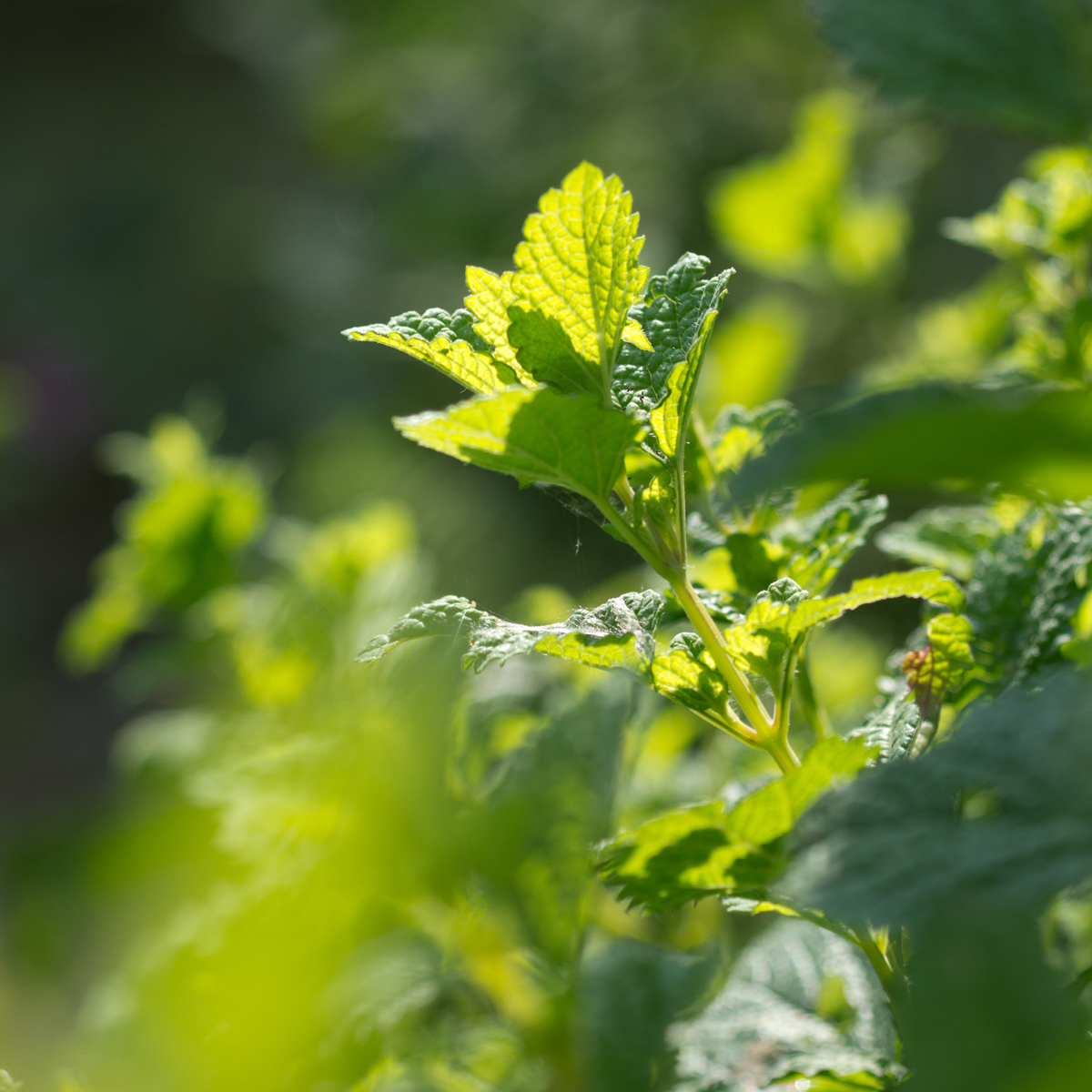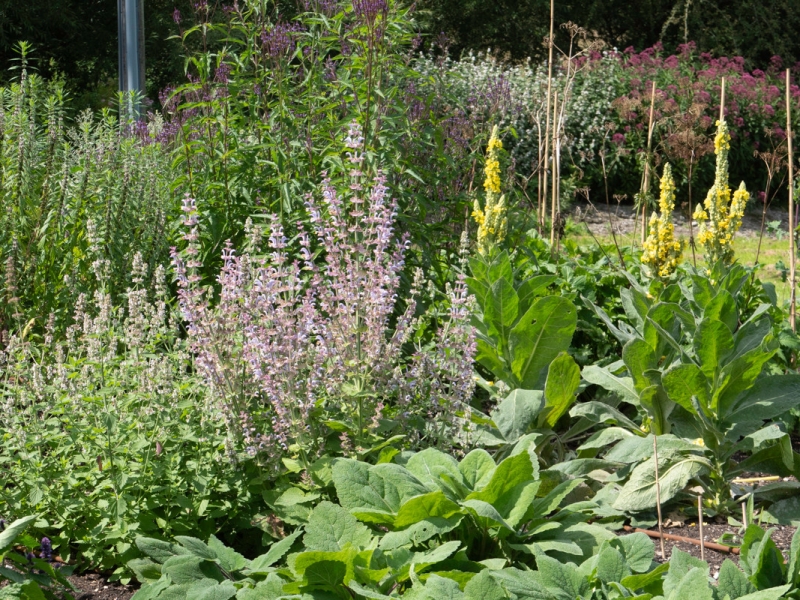Lemon balm grows widely in gardens and makes a great plant for anyone to grow themselves, even in a window box. Look out for its characteristic light green leaves: picking and sniffing a leaf will tell you immediately you have the right plant. There is that wonderful aromatic lemony aroma. Chew a piece and the bright, citrusy taste comes through straightaway: the strong aromatic lemon flavour is combined with subtle hints of mint; the slight lemon acidity and tannic astringency combined with a real sweetness.
High in the renowned rosmarinic acid also found in tulsi, sage and, of course, rosemary. It is thought to enhance the volume of the GABA neurotransmitter making more available for inducing calm. The bee-attracting essential oils, replicating the nasonov pheromone given off by bees to help orient the worker bees back to the colony, have well-studied effects on the oral herpes virus. Some of these oils are familiar sounding frangrances; geranial and neral, b-caryophyllene, linalool, geraniol, nerol, citronellal further contributing to the digestive and calming effects too. And just to expoand its complexity it also creates tannins, flavonoids (principally luteolin derivatives and apigenin) and triterpenes (ursolic and oleanolic acid).
So, lemon balm is a digestive with carminative properties and is indicated in flatulence, dyspepsia, spasms and generalised indigestion; particularly where this is exacerbated by anxiety and stress. Especially so for children, who may prefer the taste to chamomile.
It is a gentle circulatory tonic that dilates the peripheral blood vessels, lowers high blood pressure and relieves stress-related symptoms such as palpitations or angina.
This relaxant effect has also been useful where stress affects the chest and heart, with symptoms like palpitations and hyperventilation: these in turn may be associated with acid reflux, hiatus hernia, associated symptoms that can arise when the digestion is stressed.
Lemon balm tea also has a gentle lifting effect that can be very comforting in low moods. In Germany it has long been seen as particularly active on the central nervous system. Modern research supports this view.
Melissa essential oil, or highly concentrated extracts have demonstrated benefits in relieving the symptoms of oral herpes infections or cold sores. However this effect is unlikely to be found with the herb on its own.



















Reviews
There are no reviews yet.